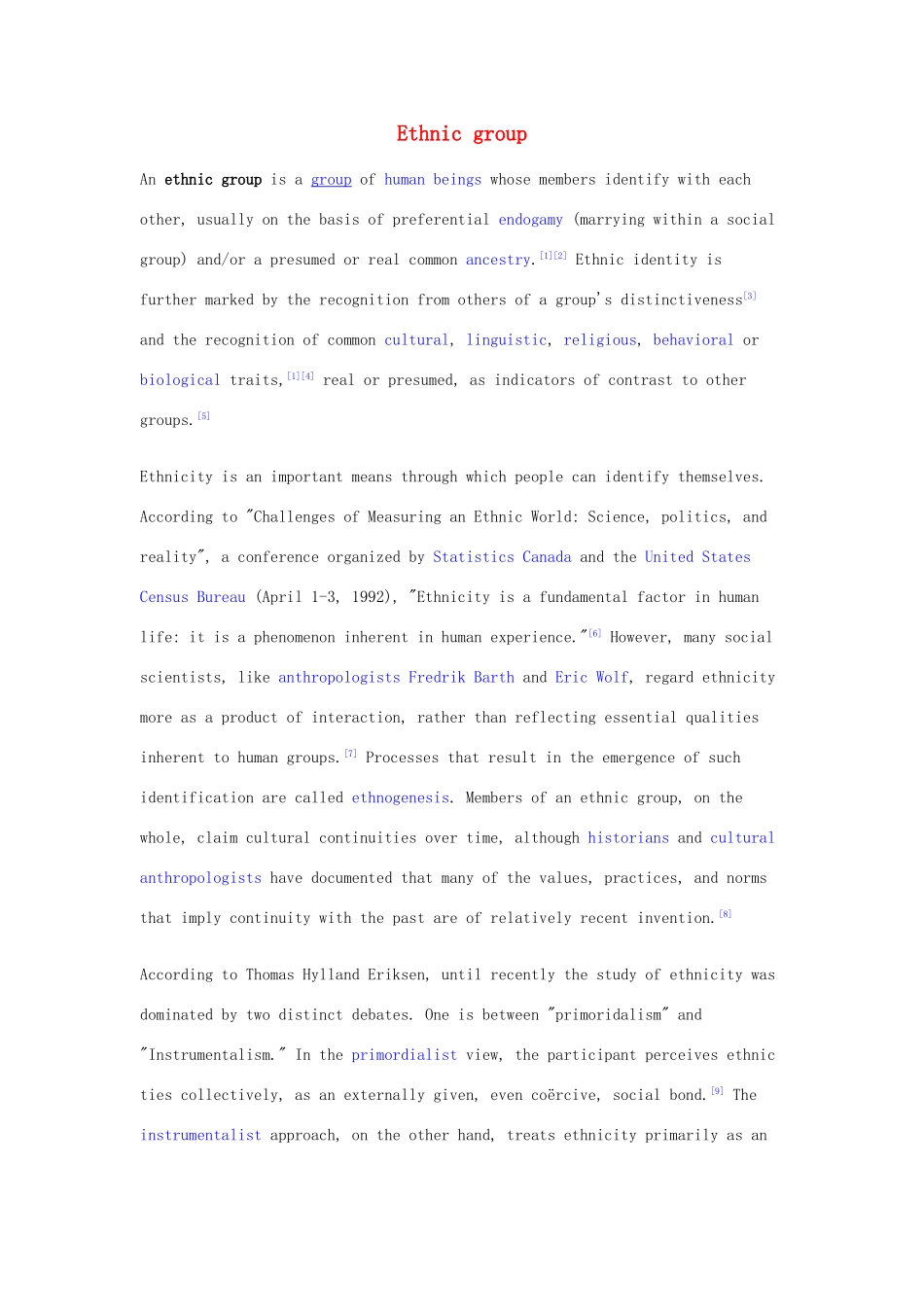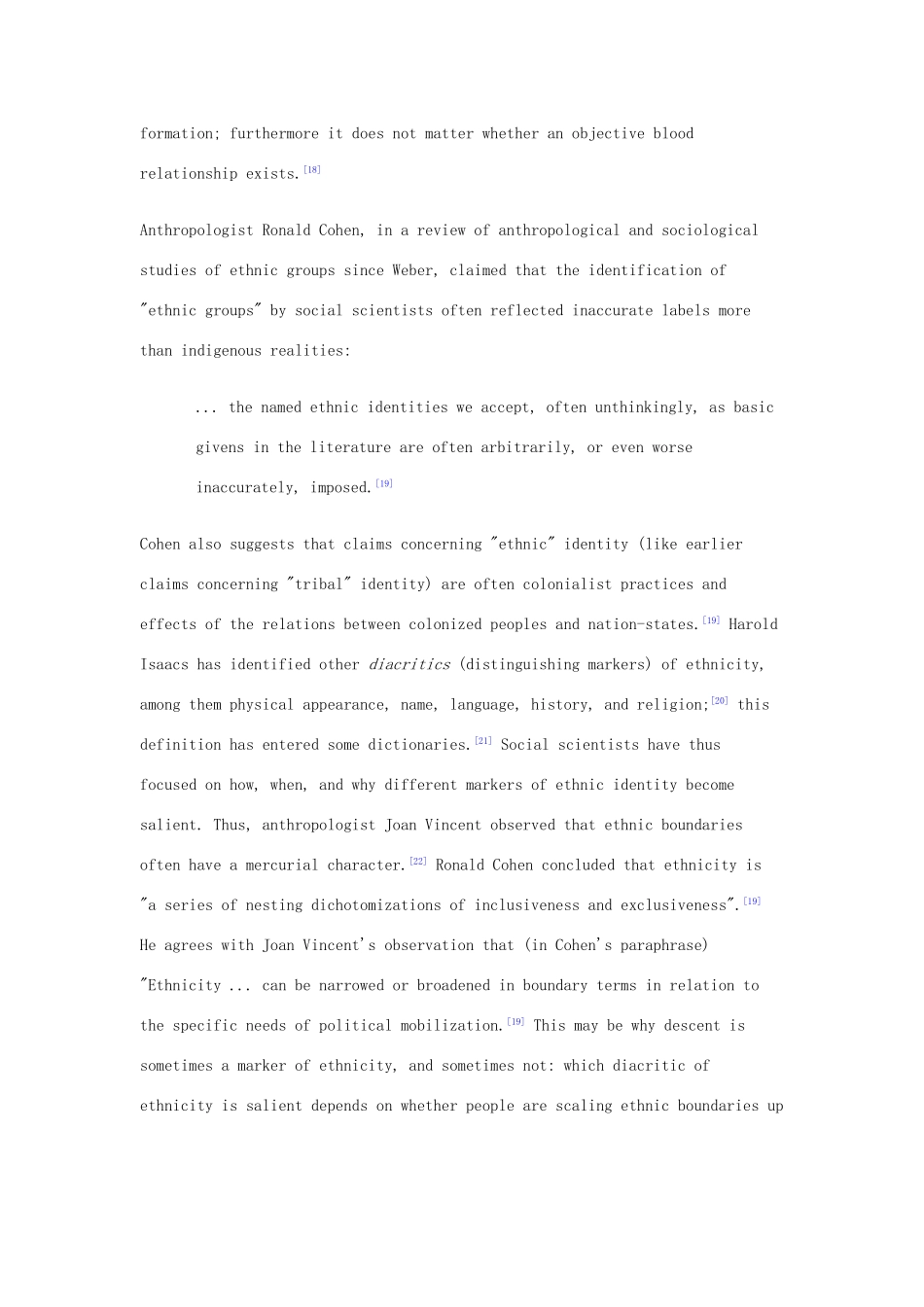Ethnic groupAn ethnic group is a group of human beings whose members identify with each other, usually on the basis of preferential endogamy (marrying within a social group) and/or a presumed or real common ancestry.[1][2] Ethnic identity is further marked by the recognition from others of a group's distinctiveness[3] and the recognition of common cultural, linguistic, religious, behavioral or biological traits,[1][4] real or presumed, as indicators of contrast to other groups.[5]Ethnicity is an important means through which people can identify themselves. According to "Challenges of Measuring an Ethnic World: Science, politics, and reality", a conference organized by Statistics Canada and the United States Census Bureau (April 1-3, 1992), "Ethnicity is a fundamental factor in human life: it is a phenomenon inherent in human experience."[6] However, many social scientists, like anthropologists Fredrik Barth and Eric Wolf, regard ethnicity more as a product of interaction, rather than reflecting essential qualities inherent to human groups.[7] Processes that result in the emergence of such identification are called ethnogenesis. Members of an ethnic group, on the whole, claim cultural continuities over time, although historians and cultural anthropologists have documented that many of the values, practices, and norms that imply continuity with the past are of relatively recent invention.[8]According to Thomas Hylland Eriksen, until recently the study of ethnicity was dominated by two distinct debates. One is between "primoridalism" and "Instrumentalism." In the primordialist view, the participant perceives ethnic ties collectively, as an externally given, even coërcive, social bond.[9] The instrumentalist approach, on th...


